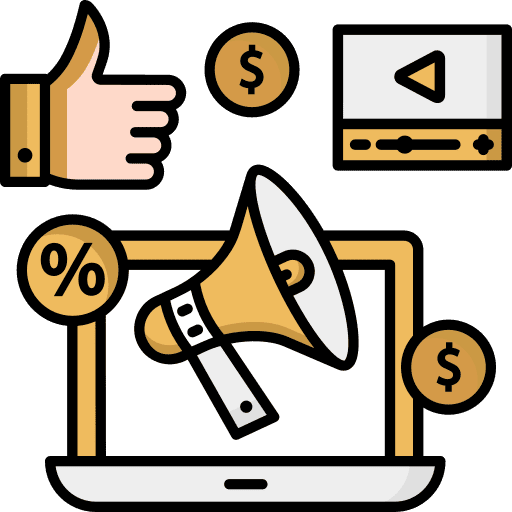In today’s digital age, the Internet has become an invaluable source of information for travellers planning their adventures. From researching destinations to booking accommodations and discovering local attractions, the World Wide Web has revolutionised how people explore the globe. In this, I will discuss the significance of the Internet as a source of information for travellers and explain the importance of tourism companies utilising Internet marketing to thrive in this competitive industry.
The Internet has revolutionised travel planning, providing a vast treasure trove of information at travellers’ fingertips. It offers destination guides, user reviews, and travel blogs, catering to all types of travellers, from budget-conscious backpackers to luxury-seeking globetrotters. Its accessibility and convenience, thanks to smartphones and tablets, empower travellers to make real-time decisions about itineraries, accommodations, and activities, enabling personalised and immersive experiences aligned with their preferences and interests.
The Role of Internet Marketing in Tourism
Internet marketing is crucial for achieving success in the tourism industry today. It increases website traffic through SEO and social media marketing strategies, enhances visibility, and cultivates customer loyalty. By creating engaging content and personalised approaches, tourism companies can boost revenue, attract more visitors, convert leads, and promote upsells. Effective marketing campaigns lead to higher booking rates and increased sales, benefiting tourism companies significantly.
Level Up Your
Sales

Ready to elevate your tourism business? Explore my tailored digital marketing services, which drive website traffic, boost customer loyalty, and maximise revenues. Whether it’s SEO, social media marketing, content creation, or other strategies, I have the expertise to help your business thrive in the competitive tourism landscape. Take advantage of the potential of Internet marketing. Contact me today to start your journey toward growth and success in the digital era. Your adventure in the world of digital marketing begins here.

Comparison of Traditional vs. Internet Marketing
- Consumer-Business Communication: Traditional Marketing involves one-way communication through print ads, TV, and billboards. In Internet Marketing, it facilitates interactive, two-way communication via social media, email, and online chat.
- Control of Conversation: In Traditional Marketing, there is limited control over offline discussions, making brand management challenging. In Internet Marketing, businesses have more control through active participation in social media, responding to online reviews, and shaping their online reputation.
- Impact of Social Media & Reviews: Traditional Marketing has a limited impact on social media and online reviews since it often operates offline. Internet Marketing leverages social media and online reviews, enhancing reputation with positive feedback and promptly addressing negatives.

Advantages of Digital Marketing for Tourism
- Speed: Digital marketing allows real-time campaigns and instant communication with potential travellers, enabling quick responses to market trends and customer inquiries.
- Cost-Effectiveness: Compared to traditional advertising methods such as print and TV ads, digital marketing is often a more cost-effective option. Businesses can allocate budgets more efficiently based on performance metrics.
- Reach: Internet marketing can reach a global audience. With the right strategies, tourism companies can target specific demographics and geographic locations, expanding their reach beyond traditional methods.
- Advanced Analytics: Digital marketing provides access to detailed analytics and data tracking. Businesses can measure the effectiveness of campaigns, visitor behaviour, conversion rates, and more, enabling data-driven decision-making.

Digital Marketing Strategies for the Tourism Industry
- Create Engaging Digital Presentations: Develop visually appealing digital presentations or slideshows showcasing your destination or services. You may use these content pieces on your website, presence on social media platforms, and approaches to email marketing. Use captivating visuals, informative content, and storytelling to engage potential travellers.
- Mobile App Development: Invest in a user-friendly mobile app that offers travel information, booking options, and exclusive deals. Ensure the app is optimised for mobile users relying on smartphones for travel planning. For convenience, include features like real-time updates, GPS guides, and in-app bookings.
- Search Engine Optimization: To improve the visibility and reach of your website, optimising it for search engines is crucial. Research relevant keywords, create high-quality content, and ensure your website is mobile-responsive. A solid SEO strategy can improve your search engine rankings.
- Pay-Per-Click Advertising: Run targeted PPC campaigns on platforms like Google Ads and Bing Ads. Utilise location-based targeting and specific keywords related to your tourism offerings. PPC can generate immediate traffic and conversions.
- Email Marketing Automation: Implement email marketing automation to send potential travellers personalised messages, reminders, and follow-ups. Use data-driven insights to tailor content and timing for better engagement and conversions.
- Data Analytics: Use advanced analytics tools to track user behaviour, website traffic, and conversion rates. To enhance your marketing plans and increase your return on investment, scrutinise the data.
Hear from Our Clients
Thanks to his expertise, our website traffic doubled in just three months!

Tour Operator
